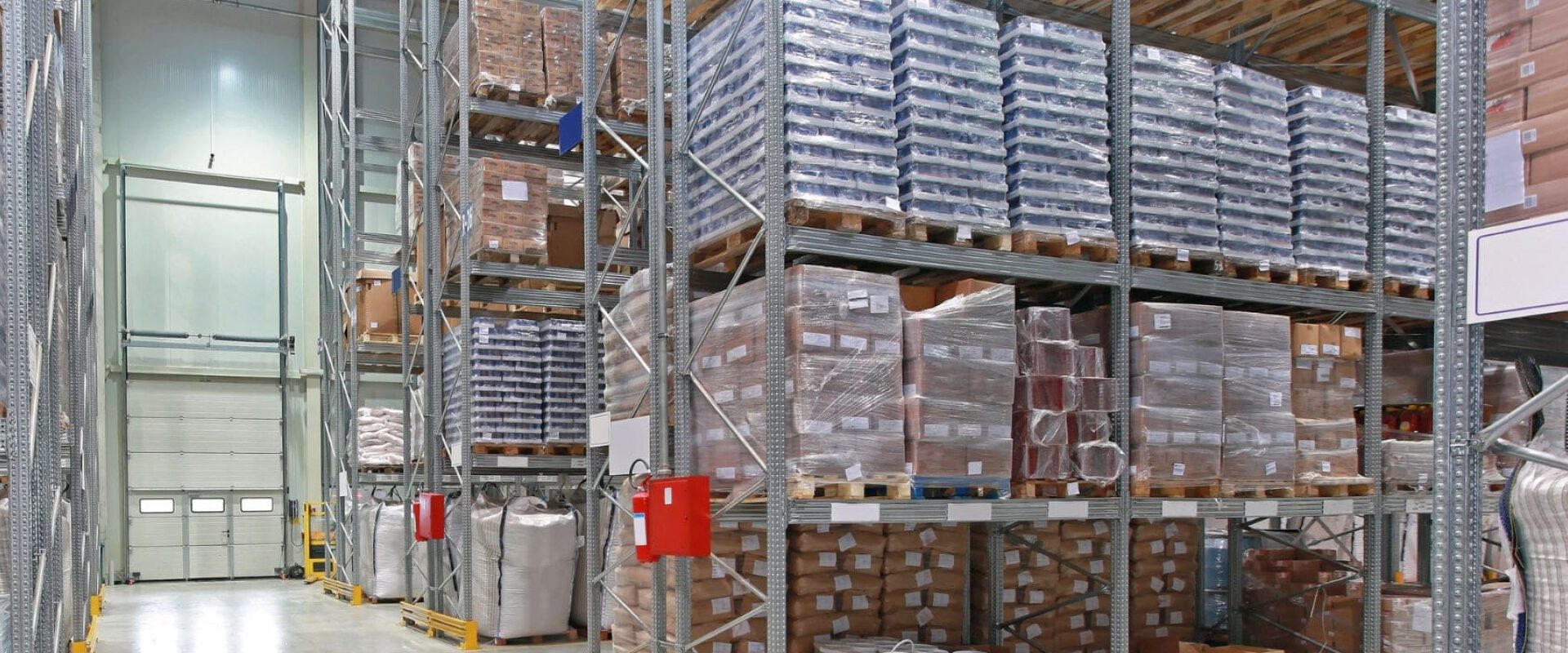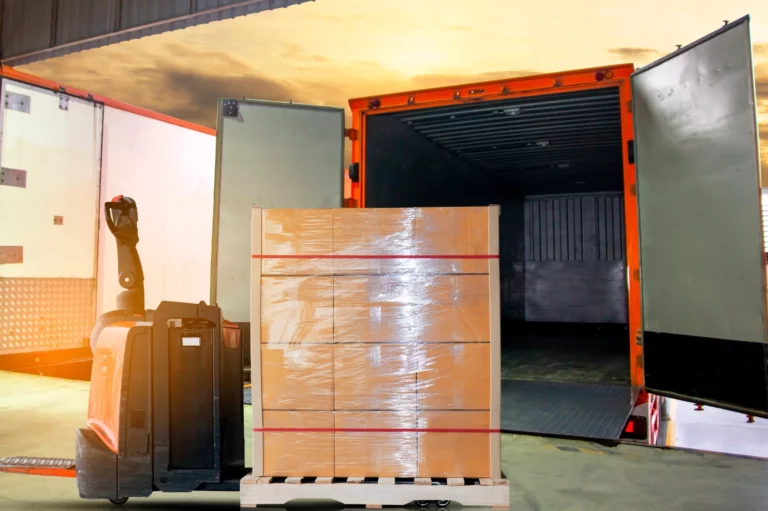How OLIMP Vets Warehouses for Our Network

At OLIMP, it is our mission to connect shippers, carriers, freight brokers, retailers, manufacturers, and more with reputable warehouses that provide a range of warehousing services. Our online platform gives you access to thousands of warehouses across North America to efficiently book on-demand warehousing services when and where you need them. With our platform, you can quickly search for and book warehousing, and compare prices, which saves you time and money and keeps your fleet moving.
In order for us to fulfill our mission of connecting you with reputable, on-demand warehousing services, it is important for us to properly vet the warehouses in our network. We understand the impact that quality, dependable warehousing services can have on your supply chain efficiency and bottom line. By carefully vetting the warehouses in our network, we can help ensure that you get the best possible warehousing services to boost your supply chain efficiency, save time and money, and even reduce your carbon footprint by limiting truck idle time and unnecessary mileage.
What We Check: OLIMP’s Warehouse Vetting Process
To ensure consistency, safety, and performance, each warehouse is verified by OLIMP’s Partner Success Team via direct interviews, documentation reviews, and location validation. We evaluate both foundational infrastructure and specialized capabilities to match the diverse needs of our customers.
Here’s what our vetting includes:
1. Verified Facility Information
-
Physical Address: We confirm that each location is a legitimate commercial facility and map-ready for easy searching.
-
Square Footage: Accurate size matters—we verify usable space to match demand for storage, staging, or cross-docking.
-
Dock Capacity: Number of dock doors, ramps, and truck courts are confirmed to understand throughput potential.
-
Operating Hours: We assess standard and after-hours access to support urgent, night, weekend, or holiday operations.
-
Airport/Port Access: For transloading or multimodal needs, proximity and access to air, sea, or rail terminals are recorded.
2. Infrastructure & Equipment
-
Security Systems: We ensure facilities offer security like 24/7 surveillance, gated access, and fire suppression.
-
Material Handling Equipment: From slip sheet and clamp forklifts to heavy-duty cranes and pallet inverters, we verify what’s available.
-
Tech Readiness: Integration capabilities, WMS systems, and real-time inventory visibility may also be assessed for enterprise users.
Storage Capabilities by Environment
Today’s logistics demands go beyond simple pallet storage. OLIMP evaluates warehouse environments to meet diverse compliance and safety needs:
-
Temperature-Controlled Storage: Includes ambient, refrigerated, and frozen zones to protect perishables, pharmaceuticals, and specialty products.
-
Hazmat Storage: Facilities must meet all local and federal regulations, including proper containment, ventilation, and emergency response standards.
-
Food-Grade Warehousing: Warehouses must follow FDA or USDA requirements for sanitation, material handling, and pest control.
-
Bonded Warehousing: Facilities with customs-bonded status allow importers to defer duties on international shipments.
-
Alcohol & Cannabis Certification: For highly regulated products, proper licenses and secure storage protocols are a must.
Compliance & Certification Standards
Certifications help us confirm credibility and specialization. We require documentation and ongoing compliance from warehouses in our network. This includes:
-
Certificate of Insurance (COI) – Required for liability and cargo protection.
-
Food Safety Certifications – Such as FDA registration, SQF, GMP, or USDA organic certification.
-
Medical & Pharma Certifications – Compliance with FDA or ISO 13485 for healthcare products.
-
TSA Certification – Required for secure air cargo handling.
-
Military & Government Certifications – For those storing defense-grade materials.
-
Foreign Trade Zone (FTZ) – Ideal for global importers looking to delay duties.
-
Alcohol Licensing – Required for storing, labeling, and distributing alcoholic products.
Why It Matters: Our Commitment to Quality Warehousing
Every shipment represents trust. At OLIMP, our warehouse onboarding process isn’t just a checklist—it’s a promise. A promise that every facility on our platform has the infrastructure, expertise, and compliance needed to support the most demanding logistics operations.
Whether you need short-term overflow storage or long-term distribution support, our network is built for speed, flexibility, and trust. Our team continuously re-evaluates warehouse performance to uphold service quality, track customer feedback, and retire underperforming facilities.
Ready to Book with a Trusted Partner?
Start now by creating your free OLIMP profile and submitting a Request for Quote (RFQ). We’ll quickly match your freight requirements with the right warehousing solution—often within 30 minutes.
You may be interested in

Omnichannel Logistics: Strategies for E‑Commerce Success
The surge in e‑commerce has transformed how goods move from producers to consumers. Statista projects that the global last‑mile delivery market will exceed $200 billion by 2027, up from $108.1 billion in 2020. At the same time, research shows that 60 – 70 % of consumers shop both online and in physical stores. These shoppers expect fast shipping, convenient pick‑up options […]

The Gen Z Factor: Smarter Delivery Strategies to Offset Slowing E-commerce Growth
As the pandemic-fueled e-commerce boom unwinds, online sales growth has dipped to only ~6% annually (far below the 18–20% peaks of 2020–21). In this tight market, Gen Z (roughly ages 18–35) is the bright spot: they’re the largest driver of current growth. A recent Descartes/SAPIO survey of 8,000 North American and European shoppers found that […]

The Ultimate Guide to Cross-Docking: Definition, Types and Benefits
Cross-docking is a logistics strategy where products from inbound vehicles are immediately transferred to outbound transport with little or no warehousing. In other words, goods “cross the docks” at a specialized facility instead of entering long-term storage. By minimizing handling and storage time, cross-docking accelerates delivery and reduces supply chain costs. For example, a cross […]
Ready to streamline your warehousing needs?
Request a quote today and discover how OLIMP's tailored solutions can optimize your operations